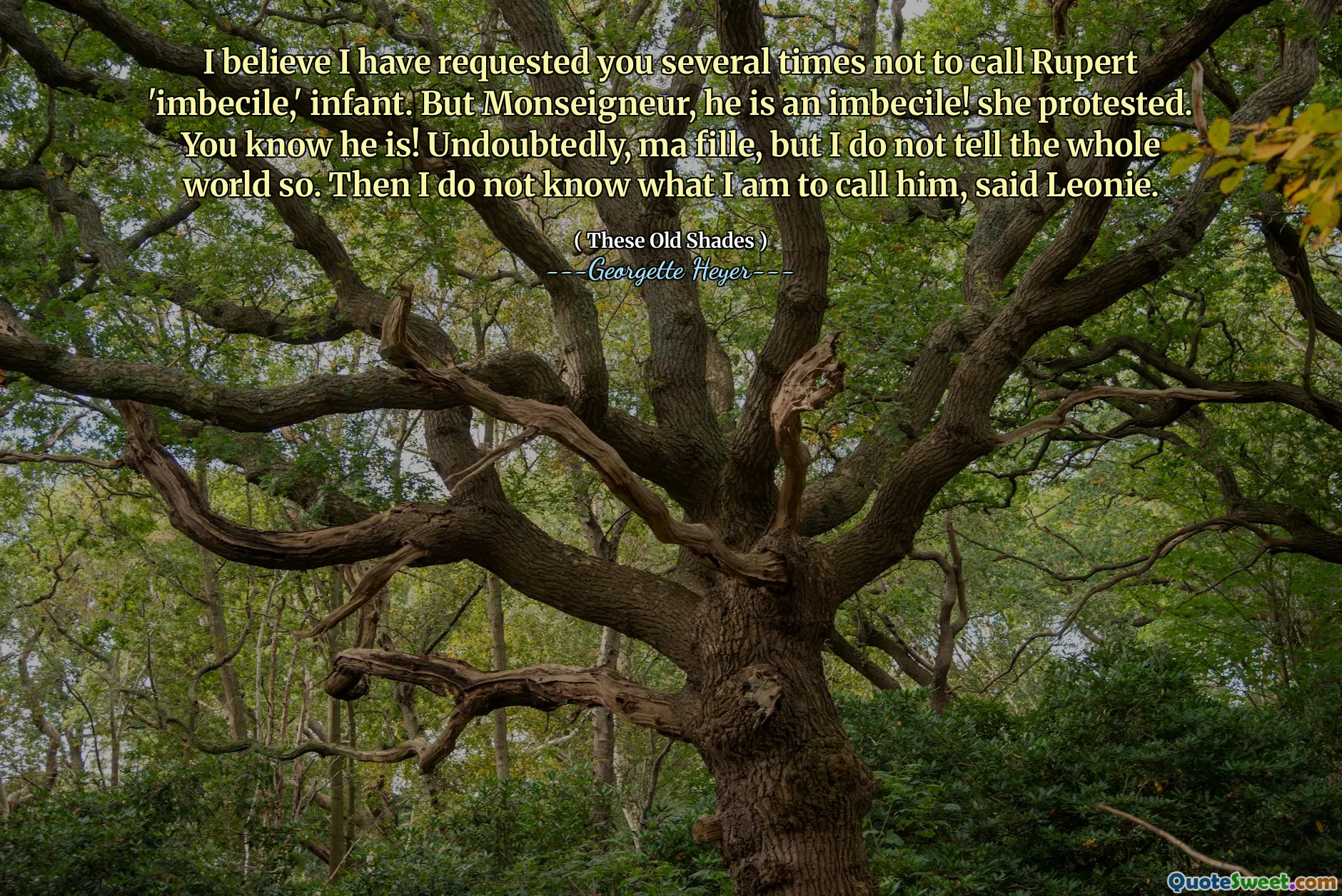
I believe I have requested you several times not to call Rupert 'imbecile,' infant. But Monseigneur, he is an imbecile! she protested. You know he is! Undoubtedly, ma fille, but I do not tell the whole world so. Then I do not know what I am to call him, said Leonie.
This exchange reveals a subtle yet profound commentary on communication, social decorum, and the nature of perception. The characters are engaging in a humorous yet pointed dialogue about labeling someone as an 'imbecile,' highlighting how people often struggle to balance honesty with tact. The woman's insistence that Rupert is an imbecile, contrasted with the gentleman's cautious response that he wouldn't speak so openly in public, underscores the delicacy of social interactions and the importance placed on discretion. Moreover, it reflects on how individuals often see others' faults more plainly than they admit openly, perhaps driven by affection or frustration. The humor lies in the contradiction—while the woman admits openly to calling Rupert what he is, the man dismisses revealing such truths publicly, emphasizing difference in perception and societal expectations. This snippet also brings forth themes of candidness versus diplomacy; truthfulness can sometimes be at odds with politeness. Philosophically, it raises questions about how we define character and the importance (or unimportance) of others' opinions in shaping our judgments. It invites us to consider whether honesty should always be the guiding principle or if there are moments when discretion preserves harmony. The intricacies of human relationships are highlighted here, showing that beneath surface politeness, genuine sentiments and perceptions often remain unspoken but strongly felt. Such dialogues from literary works offer a humorous yet insightful look into the complex layers of social interaction, revealing the universal challenge of balancing truth, tact, and affection in our dealings with others.






